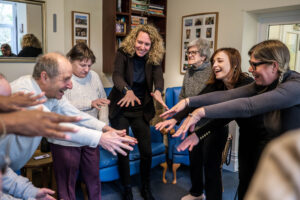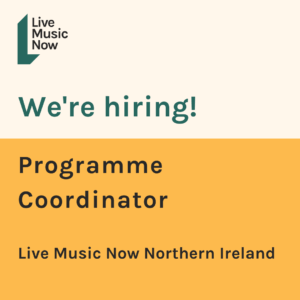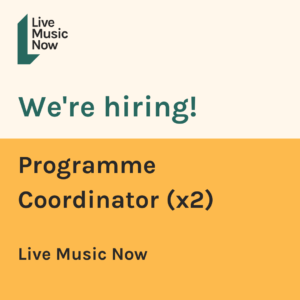Last month, we addressed a group of MPs, peers and sector leaders at the House of Lords to discuss the potential for live music to play a greater role in society.

Our musicians have seen countless times how their music can dramatically change the dynamics of places, people’s relationships with each other, and their engagement with the world around them. There is increasing recognition of the underlying neurological reasons for this, and evidence that music can help people living with dementia and a wide range of other conditions.
It was with this in mind, that the All Party Parliamentary Group on Arts, Health and Wellbeing invited LMN to discuss this work, and the potential for music to feature more regularly in the NHS. On 23 February, our Chairman (Ian Stoutzker CBE), Executive Director (Evan Dawson) and Ambassador Julian Lloyd Webber attended the House of Lords, and led a presentation entitled “Music as Medicine”.
There was great interest in the heritage and wide impact of our work, but also a pragmatic concern that we must demonstrate an economic effect as well. This might not be as hard as one might imagine, with leading projects such as Gloucester’s Art Lift already having demonstrated that participants in regular arts activities made fewer visits to their GPs and A&E departments. We are already working on several research projects with this in mind, including a series of music ‘doses’ for patients recovering from brain surgery whose recovery may be speeded up as a result.
As more and more people find themselves affected by dementia, loneliness and mental health issues, we believe that music projects such as ours have a vital role to play, and that ultimately this can save money for the NHS and adult social care services. We are doing all we can to champion this approach, and would welcome your support.
You can download our “Music as Medicine” paper here, which shows several examples of the current evidence base for music interventions.






